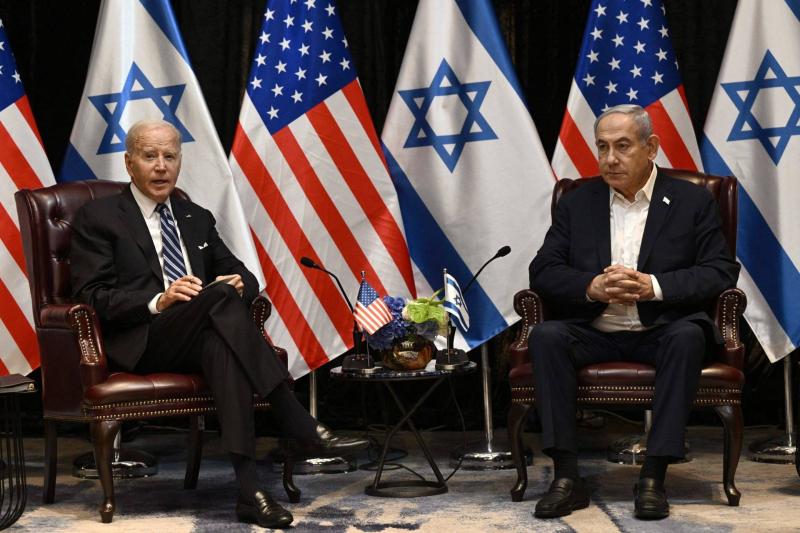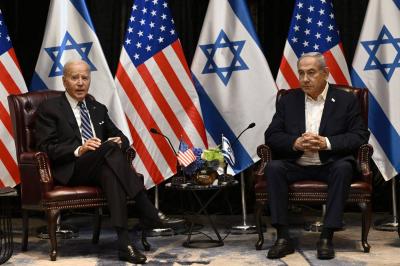Before the American presidential elections on November 5, there are indications that developments will emerge in the paths of US-Israeli relations, with the American administration determined to make breakthroughs in its approach due to internal American factors on one hand and concerns about the ongoing situation despite current developments on the other. This may lead to the execution of some obligations while postponing or freezing others amid the instability of the current Israeli government, which will push Prime Minister Netanyahu to reassess his political calculations in the upcoming period, regardless of the ongoing war in Gaza.
In this context, the widening Israeli division will increase significantly under the pressure on Netanyahu, as his government and war council are now under scrutiny. It is clear that the disagreement is not over the war itself, but rather settling scores among opponents in peacetime and partners in wartime. Netanyahu will face increasing pressures from his far-right allies, who threatened to resign from the government if he proceeds with a proposal for a ceasefire. Netanyahu's far-right coalition partners, National Security Minister Itamar Ben Gvir and Finance Minister Bezalel Smotrich, emphasized that the government should not conclude any agreements and should continue the war until the ultimate goal of destroying Hamas is achieved. At the same time, Netanyahu will lose his centrist partners who helped him avoid a scenario of escalation that could lead to unprecedented international isolation and exacerbate the ongoing crisis with the United States.
Realistically, Prime Minister Netanyahu has alternatives to escalation, which include separating from the far-right and accepting the opposition's support for his government in exchange for a ceasefire and an agreement for the release of hostages. Another option is to dissolve the Knesset and rely on elections. However, dissolving the Knesset is a risky step, as recent opinion polls indicate that three-quarters of Israelis support Netanyahu's departure—if not now, then after the war—and the continuation of the prisoner exchange deal will depend on its reflection in opinion polls. If Netanyahu finds that his fortunes rise with the prospect of early elections, he will complete the deal; otherwise, if he concludes that they have declined, he will return to war.
What threatens government cohesion is the conscription law, which aims to compel Haredi Jews (a religious sect that has refused recruitment since Israel's founding in 1948) to serve in the army. As long as the conscription law has not been resolved in the Knesset and its details have been postponed, this government will remain in power. On the American level, the Biden administration will work to recover the bodies of three Americans believed to have been killed during the October 7 attack. There is an American conviction that Hamas may be incentivized to make a unilateral deal with Washington, likely escalating tensions in US-Israeli relations and increasing internal political pressures on Netanyahu, especially as President Biden faces pressure to end the fighting in Gaza.
The Democratic Party is divided over support for the Israeli attack on the Palestinian sector; voters in key states that represent a competitive battleground have threatened not to support him in the upcoming November elections against main Republican candidate former President Trump. Especially since ongoing American-Arab attempts to achieve a ceasefire, if consensus is reached on starting to implement the agreement, will likely undermine Biden's initiative and hinder the implementation of the Security Council's resolution regarding the Israeli war on the sector. This could encourage an escalation in densely populated areas in Rafah and the central governorate camps and potentially redraw the "day after" map that the United States believes should be without direct Israeli intervention.
Overall, the roadmap to end the war in Gaza proposed by the American president, based on an Israeli proposal, reflects the different ways each party perceives its goals. Hamas can assert that it has achieved a significant accomplishment by convincing the American administration to urge Israel to halt the war and maintain Hamas's authority in the sector, which has been its primary objective since October 7. The chances of imposing this on Israel have notably increased, making it possible for the current Israeli government and the majority of the Israeli public—both supporters and opponents of the ongoing war in Gaza—to be willing to proceed with the initial phase of a prisoner exchange deal, despite the high costs involved, and to open discussions about the second and third phases. However, there is clear rejection of accepting the request to end the war and the continuation of Hamas's rule. In this context, President Biden's policy will continue to oscillate between traditional commitments to support Israel and attempts to pressure it to change some of its current positions.




